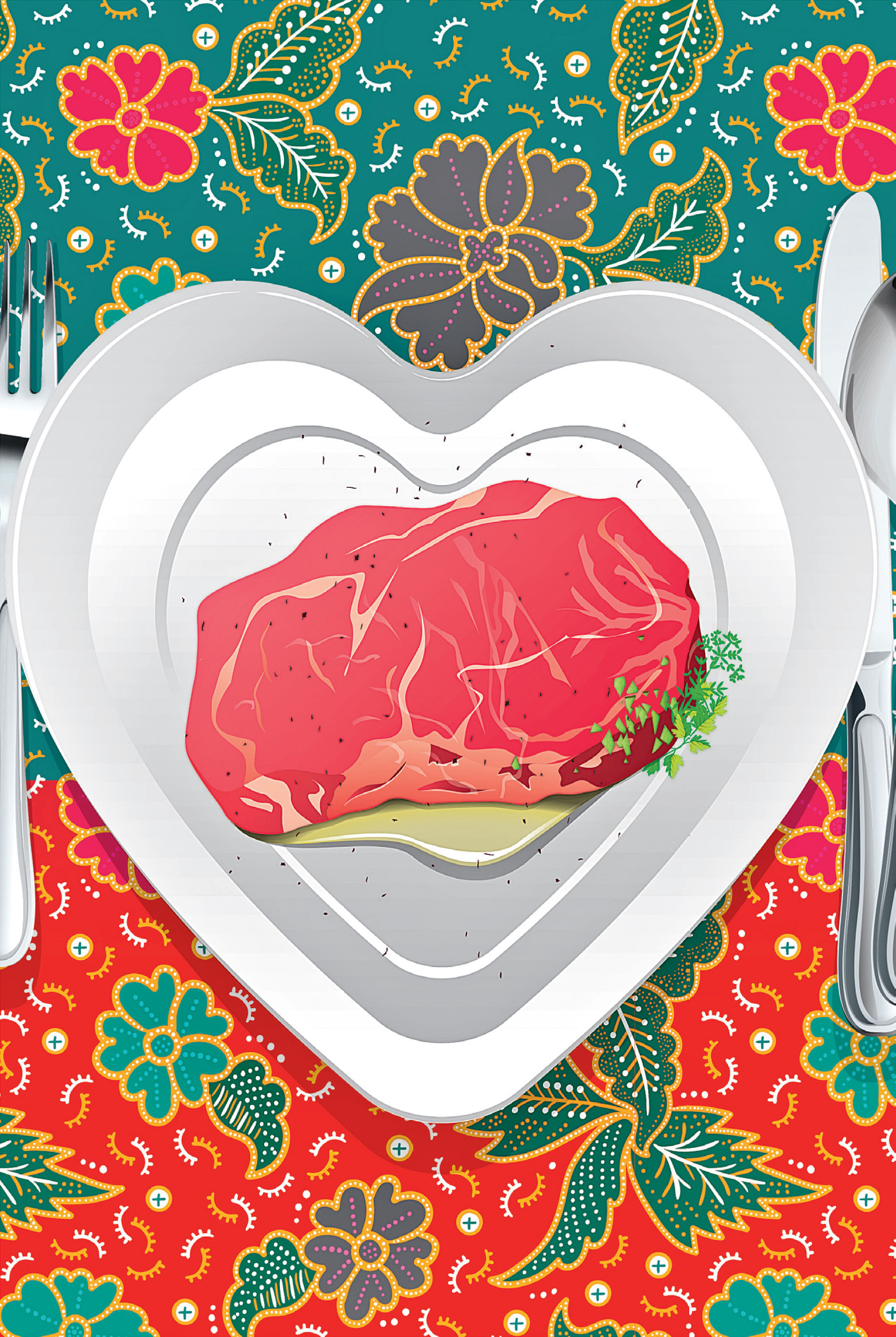Earlier this month, I read that Singapore, along with several other countries, is investing in artificial meat.
Artificial meat?
At my local supermarket, we already have shelves of things that are "meat-ish" - meat that is luncheoned, sausaged, balled, patty-ed, nuggeted, sticked and, of course, flossed.
These foods might look nothing like the animals they come from, but a look at the ingredient list will reveal that somewhere along the line, some creature's odds and ends were tossed into the mix.
What the new investments hope to create is laboratory-grown meat made entirely from plants, or cloned from real animal cells in vats, like giant flesh-fungi.
When they go to market - and there is little doubt that they will - they will probably be given a more marketable name than "flesh-fungi".
It's not a new practice. Chilean sea bass, for example, sounds nicer than Patagonian toothfish, and sutchi sells better than iridescent shark catfish.
Even the most hardened carnivore would say that artificial meat is a good thing.
I believe it to be a good thing and more than half my daily calories come from food that used to have a face.
There is the cruelty factor in factory farming, but there is also the environmental cost of making meat for a hungry world.
Right now, in all the articles I've read, the research seems to be focused on making fake flesh taste good. That is a great first step, but the bigger and more important hurdle will not be tongue-appeal, but mind-appeal - how do you make a shopper opt for faux fowl and bogus beef over the real thing?
I have a suspicion that laboratory meat already exists and can be made in huge quantities, but the only thing holding it back is branding.
My parents have been moaning about having to eat frozen meat since the fresh and slaughtered- on-the-spot option was taken away from Singapore wet markets decades ago.
I won't drink coffee made from anything other than freshly ground beans.
It's all snobbery, but our food choices are also bound up in identity, brand loyalty and a lot of other mushy, intangible factors.
Laboratory meat is already making an appearance in the United States in the form of burger patties.
The company behind it is taking the same approach as the one taken by the Tesla electric vehicle company - roll it out as a premium product and get influential people as spokesmen.
This is very clever because this positions the product as a prestige food and not, as all laboratory meat is in danger of appearing, a cheap substitute fit only for those who cannot afford the real thing.
Going after the high-end market might calm the conscience of a few rich people, but it will not make a dent on the factory farming industry.
It should be easy enough to slip laboratory meat into our more highly processed meat products - the otah otahs, nuggets, sausages and balls - but the real challenge is to convince people like my mother to buy it in the form of fillets and chops.
That challenge is huge, not just because of the taste factor, which even a full-fledged government campaign to "choose frozen" a couple of decades ago could not change.
The issue of laboratory meat tasting right reminds me of the famous Judgment of Paris wine challenge of 1976, when in a blind test, renowned judges preferred California wines to French ones.
It was a shocking upset, but the takeaway was not that the New World wines beat the Old World ones, but that it took a blind test for this result to be said out loud.
New World wines had been as good as or better than Old World wines for years before that, but for reasons that had nothing to do with flavour, no one in the establishment wanted to say it.
Taste buds can say what they want, but they will always be overruled by the brain.
In the end, maybe the only way for laboratory meat to make the jump to the mass market is when it becomes the only choice because of depleted global resources.
By then, we would have worse things to worry about than flavour or our petty perceptions of what "real" meat is.


